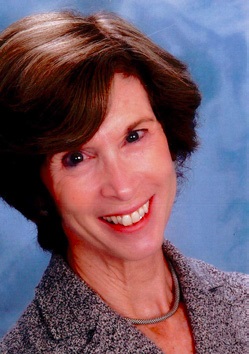Fellow Myra Green helps struggling family facing health crisis

Myra Green was working as an associate at a large New York City law firm when a partner asked her if she would be interested in assisting him with a healthcare case. It was her first foray into healthcare law and she never looked back, spending the next forty-one years representing institutional and individual healthcare providers, health insurance plans and a variety of other health organizations, and then working as General Counsel at two different healthcare companies.
“It’s a field that I felt immediately connected to and I became very interested in the health policy issues that were frequently involved. I loved it as a career,” said Green, who retired in 2013.
In 2014, Green signed on as a Fellow with the Clearinghouse’s Access to Justice Fellows Program and started volunteering with Medical-Legal Partnership | Boston (MLP | Boston), an organization devoted to addressing the legal issues that underlie the social causes of health disparities and that affect both health and access to healthcare for low-income individuals and families.
It was through her Fellowship with MLP | Boston that Green met Rachel*, a single mother whose young daughter had leukemia and required extensive hospitalization and treatment, including a stem cell transplant.
Rachel had taken a temporary leave of absence from her job in order to care for her daughter. While she was on leave, her employer told her she was ineligible for paid leave or protection under the Family and Medical Leave Act because she had not been with the company for a full year.
Rachel was also told that she would be fired if she continued to miss work and that resigning would look better on her employment history. With no other options, Rachel resigned from her job and sought unemployment benefits, only to be denied because she had resigned voluntarily. Suddenly, Rachel found herself a single parent, with no job and no income, caring for a critically ill child.
Green represented Rachel in two administrative hearings before a Department of Unemployment Assistance Board of Review, where she was able to convince the hearing officer that Rachel’s resignation was due to “compelling circumstances” and therefore not voluntary. With Green’s help, Rachel was finally granted unemployment benefits.
Legal interventions like the one that helped Rachel are a relatively new concept. The first documented medical-legal partnership in the U.S. originated in 1993 at what is now Boston Medical Center, when Dr. Barry Zuckerman noted that housing issues, food insecurity, and other social inequities outside of the control of healthcare professionals were having detrimental effects on the health of the children he oversaw as the Chief of Pediatrics.
Dr. Zuckerman partnered with an attorney from Greater Boston Legal Services who took on the immense task of addressing these problems. They hoped that legal interventions would lead to better health outcomes.
In one case, the team was able to show how mold in poorly-maintained rental properties and homes around the city was linked to cases of childhood asthma.
Today, nearly 300 medical-legal partnerships exist around the country, and that number continues to grow. Praised by doctors and lawyers alike, these programs have a great impact on the lives of those they serve.
Green credits Samantha Morton, Executive Director of MLP | Boston, for the organization’s continued success.
“She’s an inspirational and creative leader of her organization. It has been a privilege to work with Samantha and her team. I have enormous respect for them,” Green said, adding that she planned to continue to volunteer with the program even though her Fellowship has ended.
In April, Rachel and her daughter were special guests at a breakfast hosted by MLP | Boston, which featured a keynote address by Lauren A. Taylor, a global health expert and a co-author of The American Health Care Paradox: Why Spending More is Getting Us Less.
Rachel had prepared a few words and she was invited up to the podium, where she talked about the joy she felt when her case was taken. “I want to say thank you to Myra Green, a lawyer who has become an angel for my family,” she said, smiling as her daughter, back in school and doing well, watched from the audience.
*Client’s name has been changed to protect privacy.